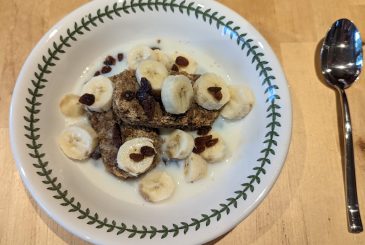Hatty Bates, Performance Nutritionist for British Rowing, shares advice on gut health outlining how it can help maximise your rowing performance on or off the water
Having good gut health is becoming increasingly more important. Not only does it impact the way we digest food, but it can also positively influence other parts of our lives such as our immune system, sleep, stress, and performance. We explore what the gut microbiome is, how healthy gut bacteria can impact both health and rowing performance as well as how to improve the gut microbiome diversity.
Why is the gut microbiome so important?
The digestive system is complex and comprises tissues and organs which play specific roles in absorption and digestion of food. The gut microbiome is the term used to collectively describe the trillions of microbes (including the likes of bacteria, fungi, and viruses) that live in the gastrointestinal tract. Whereas some bacteria are associated with disease, others are very beneficial and important for us!
Just like our fingerprints, our gut microbiome is unique to each individual. There are several factors which could affect the gut microbiome throughout our lifespan such as stress, ageing, infection, exercise, antibiotic use, and travel.
“Having a healthy gut microbiome could lead to less frequent bouts of illness”
The composition and diversity of the gut microbiome impacts the way the body functions. Healthy gut bacteria play a significant role in digestive and metabolic health, as well as the gut-brain axis which could impact the levels of stress and anxiety. Not only will having a healthy and diverse gut microbiome impact your day-to-day health, but it could also positively impact your rowing training and performance.
As 70-80% of our immune cells are located in the gut, having a healthy gut microbiome could lead to less frequent bouts of illness, so decreasing the likelihood of having to miss training due to coughs and colds. In addition, the gut bacteria may play a role in supporting recovery due to its ability to help reduce excess inflammation. When considering the gut-brain axis, a healthy microbiome could affect brain mental clarity, cognition, and mood. Hopefully, this last paragraph has shown just how important the gut microbiome is!
How to improve gut microbiome diversity
Although we cannot compare our gut microbiome against a set standard, there are several ways to optimise the composition of the gut microbiome. The best way to increase the diversity of your gut microbiota is to eat a wide range of food rich in fibre, polyphenols and prebiotics.
Eat more fibre
The current recommendation is that adults should eat about 30g of fibre per day. However, fibre can often be forgotten about, and the current average fibre intake is approximately 20g per day.
| Food | Portion size | Fibre content (g) |
| Pear (with skin) | 1 x medium | 3 |
| Apple (with skin) | 1 x medium | 2 |
| Dried apricot | 5 (~40g) | 9 |
| Wholemeal bread | 1 x slice | 3 |
| All-Bran cereal | 40g | 10 |
| Lentils (red split) | 100g | 4 |
Fibre is found in plant-based food such as starchy carbohydrates, fruit, vegetables, wholegrains, beans, and pulses. Some easy ways to increase the fibre content of your diet include opting for wholemeal or granary bread, adding pulses such as beans or chickpeas to salads and aiming to eat at least five portions of fruit and veg per day. Having a wide variety of these foods will also help increase the diversity of the gut microbiome.
“Having natural yoghurt will not only support recovery and muscle adaptations but it will help your healthy gut bacteria”
Pre and probiotics
Both prebiotics and probiotics have recently become big areas of interest due to their potential impact on healthy gut bacteria. Although they sound similar, they both play different roles. Probiotics are the live bacteria themselves which are found in certain foods and provide numerous health benefits, whereas prebiotics are a type of fibre and act as food to help promote the growth of beneficial gut bacteria.
Foods that are high in prebiotic fibre include onions, garlic, leeks, Jerusalem artichokes, asparagus, and bananas. In general, as part of your recommended 30g of daily fibre intake, at least 5g of this should be prebiotic fibre. Probiotic food (those containing helpful bacteria for the gut) include natural yoghurt and fermented food such as kefir, kimchi, and sauerkraut. Therefore, having a bowl of natural yoghurt following a tough training session will not only support recovery and muscle adaptations but it will also help feed your healthy gut bacteria.
The bottom line
The gut microbiome plays an important role in health and performance. There are a number of easy ways to promote a healthy gut microbiome. This includes consuming plenty of fibre-rich food such as fruit, vegetables and wholegrains, as well fermented foods such as yoghurt, sourdough bread and kimchi. In addition, prioritising sleep, having a good bed-time routine as well as managing stress levels will all positively impact the gut microbiome.
British Rowing members get 20% off the cost of Bimuno pre-biotic products – just use the code ROWING20 at checkout.










